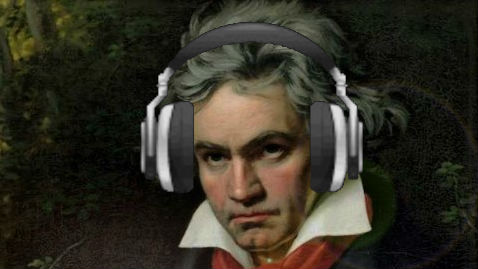Classical Music Isn’t Dead. It’s Just Gone Indie.

What’s the Big Idea?
When we think of classical music, we tend to think dead white men in wigs. One under-discussed legacy of the Boomers is that for every generation since the Summer of Love, going to a concert means standing around in a bar and having lukewarm beer spilled on your shoes rather than taking your seat in front of a velvet curtain.
Perhaps, like the switch from skirts to blue jeans, this shift was initially about defying the protections of wealth and status and pledging your allegiance to mass access instead of cultural stewardship by an elite few. Now it’s about perception.
Compared to a performer like Robert Plant, the 100 members of an orchestra seem not only uncool, but aloof. (What do they expect of us? Do they even like us? When do we clap?) With the exception of the occasional crossover superstar, symphonic music has been written off by many as an affectation.
Can the classically-trained musician ever return to relevance on a wide scale? Yes she can, says Roberto Díaz, the former principal violist of the Philadelphia Orchestra and current president of Curtis Institute of Music, a renowned tuition-free conservatory. But playing your instrument really well no longer equals success. If you want to do it professionally, you have to have a multidimensional career.
It’s more important than ever for young artists to develop “people skills” and to embrace technology, using it in unexpected ways to take control over creative output. “Musicians now depend less and less on someone else, a major recording company or a PR firm to do the things that they used to do for a career. They are starting to self-produce CD’s, they are on the internet, they’re on You Tube.” Practice makes perfect, but perfection can’t be the only goal when any flaw in a recording can be erased with a keystroke.
What’s the Significance?
The DIY ethic hit rock music back in the early 1980’s. (An apocryphal story has it that when Atlantic Records founder Ahmet Ertegün approached the punk band Fugazi with a million-dollar deal, eager to sign the next Nirvana, frontman Ian MacKaye replied, “We’ve already got a million dollars. And a record label.”) But as highbrow and lowbrow converge, the notion that artists need to organize and promote themselves is being embraced for the first time by classical musicians, not just punk rockers.
Díaz himself recently diverted from the beaten path to serve as a viola section coach to players in the Youtube Orchestra, which aimed to bring uber-democratic ideas like crowd-sourcing, and some much-needed publicity, to a medium that at one time only a public radio station could love (or admit to loving).
Participants in the online symphony orchestra were selected by 15 million viewers based on audition tapes they uploaded to the site. Winners then convened for an intensive week-long global band camp at Carnegie Hall. The result? The Grand Finale became the most-watched live music concert on the Internet – and not just among the 60+ demographic – proving decisively that even in the age of Facebook, classical music can still attract fans all over the planet.




